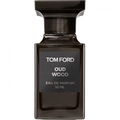Nanu? Sphinxes as stern crocodile observers? In the text about Luxor Oud, it is mentioned that they look down on the crocodiles that slither along the banks of the Nile at the gate to the temple complex of Luxor. Aha. When I visited THE Sphinx, a mere 500 km further north in Giza, it looked down on a few tents and pits and showed no interest in the surrounding fauna. Of course, in the immediate vicinity, there were only wooden replicas of crocodiles or corresponding figurines dangling in plastic form from souvenir keychains; I can’t remember what else was offered at the souvenir stalls. Perhaps the numerous, significantly smaller counterparts in Luxor take a more active interest, but according to the pictures, they themselves are hardly big enough to pose a threat to a hefty crocodile.
But to the scent: MisterE has chosen something fine for me - thank you very much for that!
The opening offers such mild fruit that it seems suitable as an introduction to a therapy for fruit scent phobics. The fruity note holds up well throughout. Despite its mildness, it does not get lost, as the entire fragrance is quite restrained. This mandarin is neither too sour nor sweetly musty like the last, unworthy overripe specimens after the Christmas holidays. It is just right.
The rose, in its character, is initially somewhat close to many other scents that fall under "Turkish" or similar. However, what I particularly like in this case is its naturally compact nature, without the stretch between flashy rose noise and the watery quality of fine roses, as seen in Black Aoud by Montale. Instead, floral, sweet, and fruity elements are beautifully balanced - I will simply subsume the indicated "fruits" here. For rose scent fans, this might come off as a bit too subtle, yet I find it very successful in style, almost lifelike; it is just right at this point. Garden reference: "Nostalgia," a two-colored masterpiece from the house of Tantau. Ever-blooming, strongly fragrant, and quite robust, this combination is the ultimate challenge for rose breeders.
Could it be that Memo emphasizes the significance of the ingredient cistus by listing it twice on its French website, once in English and once in French...? Just a little joke on the side. The cistus is also restrained. In the current context, it is just right.
From early afternoon (around the seventh hour), a slightly medicinal oud note gradually comes to the forefront. During the morning, it was already subtly hinted at in a discreet woody manner. Unassisted, I would have guessed cedar there, although not solo-airy, but labdanum-creamy. This oud note is also quiet. It’s surprising, given that the pharaohs' garments were supposedly bathed in this stuff, as I learned somewhere.
A hint as to why this might be the case could be that the manufacturer does not speak of oud, but rather of an oud accord. It is quite possible, therefore, that it is self-crafted oud, similar to Oud Immortel by Byredo. In any case, this is far from the oud heavyweights. But that’s okay; it fits the approach, and given the endangerment of the agarwood tree, that’s just fine. And again, the note is just right at this point.
Towards the end of the fragrance development, a combination of now airier, patchouli-dustier, oud-like wood, fruits ("red" is absolutely plausible), and a hint of coumarin delights. This is still well perceptible even after ten hours, so the longevity is quite decent.
Why am I not bursting into jubilation now, even though everything is right? Hmm. In the end, I get the impression that there was a lack of courage in some corners to fully develop ideas, to set a focus. Nevertheless: an overall successful perfume. For anyone looking for a fundamentally oriental scent that is still completely wearable, comparably quiet like perhaps (I don’t know) an Arab marketplace at night, this is: just right.









 Top Notes
Top Notes  Mandarin orange
Mandarin orange Blueberry
Blueberry Orange
Orange Waterproof Chalk
Waterproof Chalk Heart Notes
Heart Notes  Rose
Rose Cypriol
Cypriol Lily of the valley
Lily of the valley Base Notes
Base Notes  Oud
Oud Cistus absolute
Cistus absolute Patchouli
Patchouli Styrax
Styrax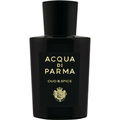
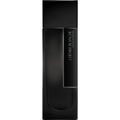

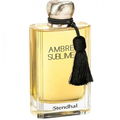






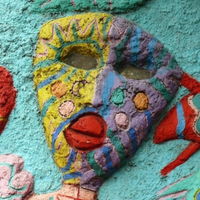

 Kurai
Kurai Chnokfir
Chnokfir Floyd
Floyd Chizza
Chizza Bastian
Bastian Caligari
Caligari Zauber600
Zauber600 CharlAmbre
CharlAmbre MisterE
MisterE Seerose
Seerose





























